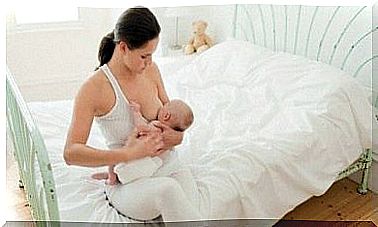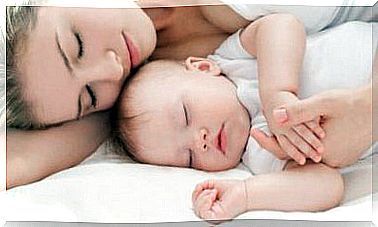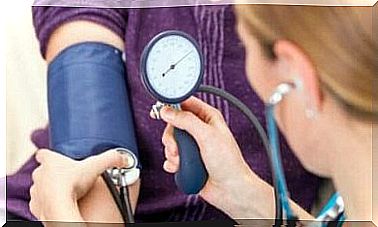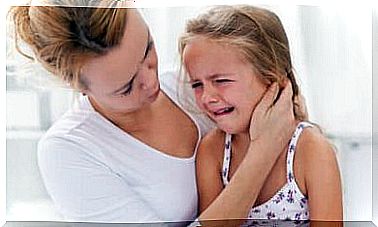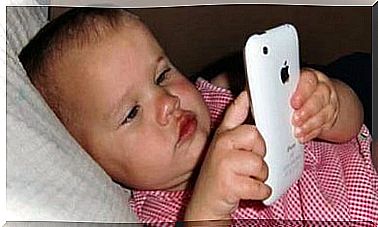Does The Vegan Diet Affect Breast Milk?
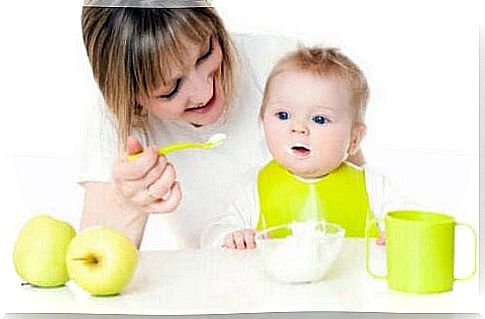
As the years go by and new information comes out, there are some women who choose to follow the vegan diet. In fact, well-planned vegetarian diets are, as a rule, very healthy.
However, if women are pregnant, it is important to pay special attention to breastfeeding to know if their baby is getting enough nutrients.
The American Academy of Nutrition and Dietetics claims that one needs to plan his vegan diet with a specialist. An unplanned diet can cause health problems, both for the mother and the baby.
The vegan diet and breast milk
Babies growing up in vegan families also need breast milk to develop properly.
You should supplement this milk with vitamin B12 so that your baby gets all the necessary nutrients. Depending on the type of food the family eats, the baby may also need iodine.
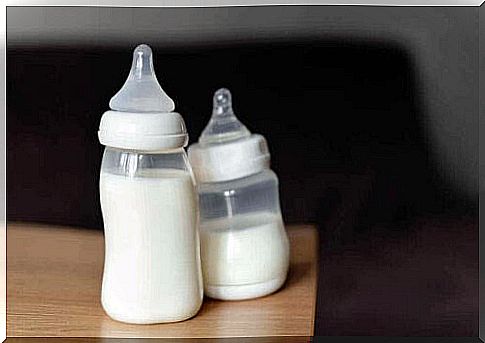
If a vegan mother or wants, or can not, breastfeed, or needs some form of supplement, there are breast milk substitutes on the market with soy or hydrolyzed rice that one can give his baby. Another option is to use infant formula from organic cows or goat milk.
According to the guidelines according to the European Union’s infant formula, they contain all the necessary ingredients to properly nourish babies. Therefore, there are many vegan and vegetarian families who choose to use them.
As always, it is important to talk to your doctor to get professional guidelines and recommendations for each specific case.
Complementary foods that one can include in the vegan diet
The American Academy of Allergy, Asthma and Immunology emphasizes that you do not have to wait to introduce peanuts, nuts or soybeans. Your baby may start eating these products when he or she is around 6 or 7 months.
On the other hand, it is important to note that some foods are excellent substitutes. What foods are these?
Legumes
Legumes serve as the primary substitute for meat and fish in the vegan or vegetarian diet. They contain a high amount of protein, iron and zinc. This makes them one of the first foods you should give your baby. As a rule, you should accompany them with vegetables.
Some of the best legumes you can choose from are:
- It is best to introduce peeled, red lentils. They do not contain much fiber and they are easy to digest.
- Later, you can add cooked chickpeas and peas, as well as other types of lentils. You can also give your baby legumes that are not peeled or peeled.
Solid foods
If your baby is old enough to eat them, you can give your baby more solid foods. For example, you can give your baby hummus made from chickpeas, boiled tofu, peeled peas and lentil stew.
You can give your baby peanut butter without sugar, smeared on either banana or bread. Occasionally, for ovo-lacto vegetarians, you can give your baby an omelet.
Cerealier
According to cereals, we recommend that they be whole grains. Generally, cereals are made from dextrined card. In these grains, the complex carbohydrate chains are partially hydrolyzed. In 20-30 percent of these products, the carbohydrates are in a very simple form, such as glucose.
As they contain a lot of sugar, we do not recommend these for both babies who eat meat and vegetarians.
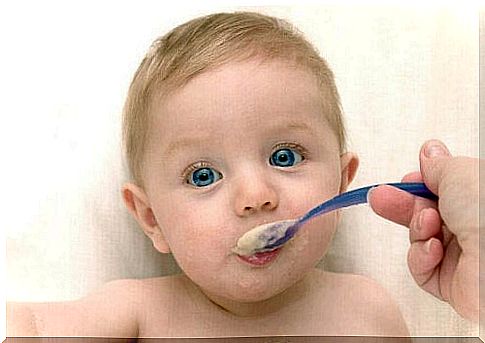
Gluten
According to the Spanish Association of Pediatricians, you should introduce gluten when your baby is about 6 months old. Do this when you start introducing solid foods.
The best way to add them is with wholemeal bread. Babies digest it in part, and they, as a rule, handle it well.
A vegetarian or vegan diet can be completely healthy. Furthermore, it can provide important health benefits, both in the short and long term.
What do the experts say about the vegan diet?
According to the Academy of Nutrition and Dietetics, vegan food can be remarkably healthy, but only if experts plan and supervise it. In fact, this type of diet is good in all stages of life, including pregnancy, breastfeeding and childhood.
According to research, vegetarian women need enough vitamin B12 during their pregnancy and when breastfeeding. This is because vegan mothers, as a rule, have lower levels of docosahexaenoic acid (DHA).
In conclusion, the vegan diet is, as a rule, healthy, but it is important that experts supervise it. Your baby’s proper development depends on it.



